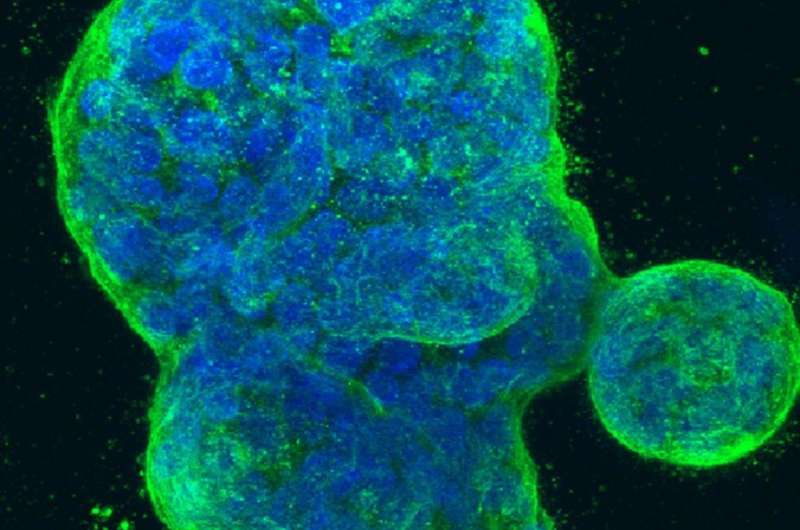This article has been reviewed according to Science X's editorial process and policies. Editors have highlighted the following attributes while ensuring the content's credibility:
fact-checked
peer-reviewed publication
trusted source
proofread
Researchers identify new marker for breast cancer prognosis

A protein called retinitis pigmentosa GTPase regulator interacting protein 1-like (RPGRIP1L) performs various functions that are important for development and for health throughout life, and mutations in the RPGRIP1L gene have been linked to different diseases. New research published in The FASEB Journal indicates that expression levels of the RPGRIP1L gene might serve as a new prognostic marker for individuals with invasive breast cancer.
When investigators examined breast tissue specimens from different women, they found that the expression of RPGRIP1L was elevated in invasive breast cancer specimens compared with normal breast tissue specimens. Also, among patients with invasive breast cancer, those with higher RPGRIP1L gene expression had shorter survival times than those with low expression. Furthermore, elevated expression of RPGRIP1L corresponded with a spectrum of unfavorable clinicopathological features such as the presence of more aggressive forms of cancer and larger tumors.
The researchers also identified 50 genes and 15 proteins whose expression was positively related to RPGRIP1L expression, with most of these proteins and genes being involved in different aspects of the immune response and metabolism.
Finally, the team found that four compounds used against cancer—abrine, epigallocatechin gallate, gentamicin, and tretinoin—showed potential for reducing the expression of RPGRIP1L in lab experiments.
"The findings of our research underscore the potential of RPGRIP1L as a significant prognostic biomarker for breast cancer and suggest the viability of novel therapeutic strategies that may modify disease progression, thus potentially enhancing survival rates among affected individuals," said co-corresponding author Jie Zeng, Ph.D., of the First Affiliated Hospital of Hunan Normal University, in China.
More information: RPGRIP1L as a new biomarker for prognosis and tumor immune of breast cancer, The FASEB Journal (2024). DOI: 10.1096/fj.202302523R


















